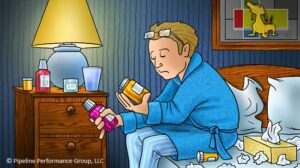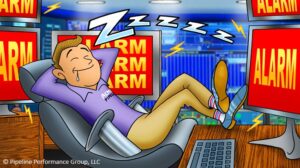The first American Heart Month was February 1964. One of my uncles, a shift worker in a clay mine, died of a heart attack when he was 45 in 1970. My father, a pipeline shift worker, had a heart attack in the early 1980s. He was in his early sixties and retired soon after the heart attack. Another uncle, a baker who worked mostly night shifts, had his first heart attack when he was in his fifties. American Heart Month has occurred annually for 52 years. I wonder how many of us pay attention to the messages about the importance of heart care. I am 67 and am surprised, but grateful, that I have not had a heart attack. I have several of the risk factors for cardiovascular disease. Do you have good practices for your heart health?
The American Heart Association developed “Life’s Simple Seven” to help fulfill its mission of Building healthier lives free of cardiovascular disease & stroke. Why don’t we adopt these practices this month? They are:
1. Manage Blood Pressure
2. Get Active
3. Control Cholesterol
4. Eat Better
5. Lose Weight
6. Don’t Smoke
7. Reduce Blood Sugar
You can assess your heart health at Life’s Simple Seven
There have been studies that involved shift workers and/or people who worked only night shifts, both male and female. Dr. Daniel G. Hackman, the author of one study, advises, “If you are a shift worker, know your cardiovascular risk factors cold. Go see your family doctor and get an annual physical. And ask for measurement of your blood pressure, waist circumference, cholesterol, triglycerides, and fasting blood sugar.”
I go to my doctor every six months and he helps manage my blood pressure. My cholesterol and blood sugar are normal. I do not smoke. In fits and spurts, I get active, eat better, and lose weight. But I usually gain what I lose back. What about you?
I am sure you have heard of the “Freshman 15.” Some college freshmen gain 15 pounds in their first year of college. Pipeline controllers, in a mostly sedentary job, tend to gain weight in their first years on the job.
“Life’s Simple Seven” should have an eighth step – Get Enough Sleep. Sleep deprivation has serious consequences. One study that examined data from 3,000 adults over the age of 45 found that those who slept fewer than six hours per night were about twice as likely to have a stroke or heart attack as people who slept six to eight hours per night. Life’s Simple Seven
Sleep deprivation can lead to higher blood pressure, an elevated heart rate, increased insulin resistance, and higher levels of C-reactive protein (CRP). Unfortunately, all of these factors can contribute to cardiovascular disease. In my experience, sleep deprivation also makes it more likely that I won’t be active or eat better.
This is a depressing article! Most of us do not like to think that our shiftwork jobs make it more likely that we might have heart problems. Whether we like it or not, we need to not only think about the risks but we need to take positive steps to live free of cardiovascular disease. It is easier to prevent problems than to address problems after you have a heart attack or stroke.
Take care of your heart, see a doctor regularly, and get adequate sleep.




